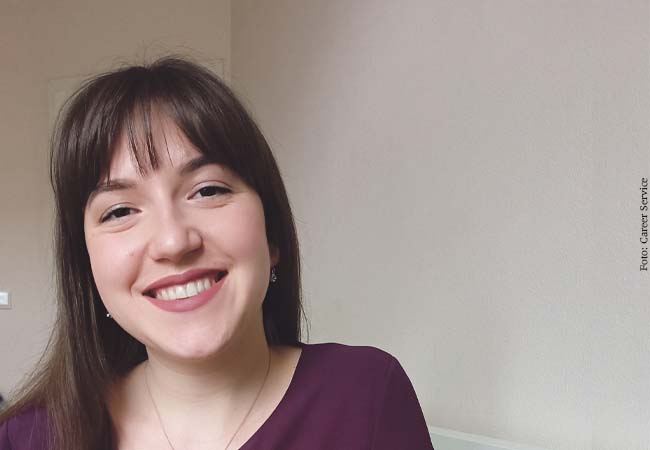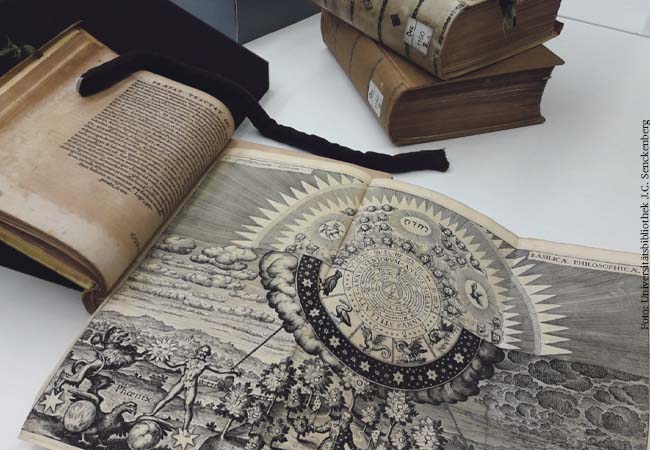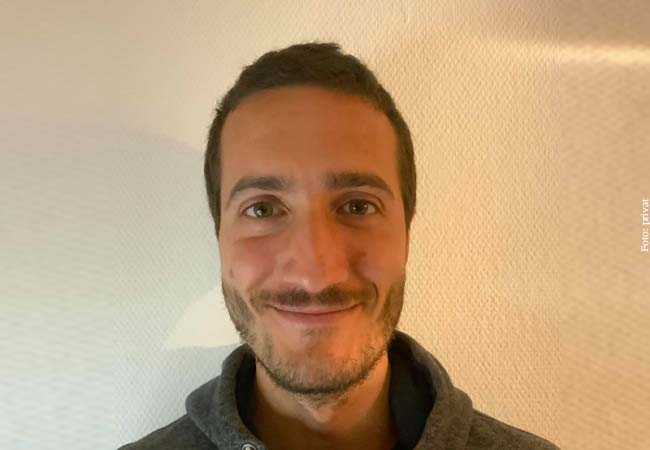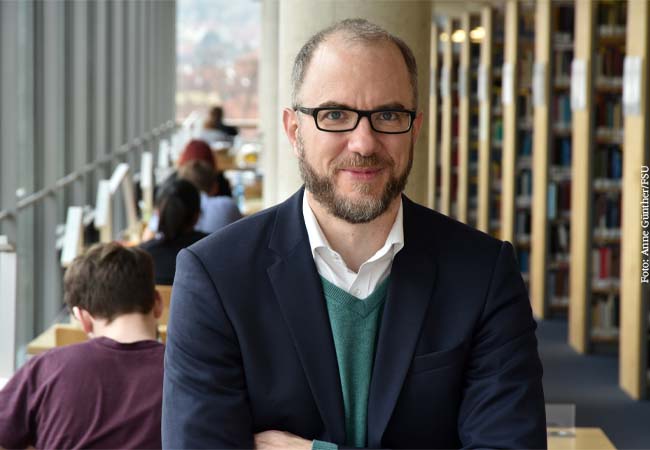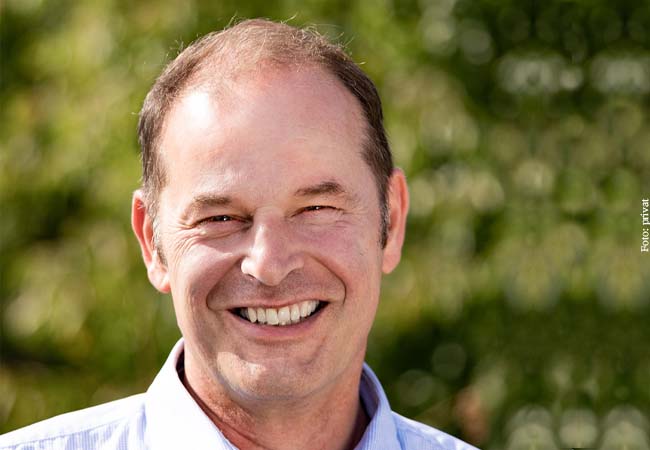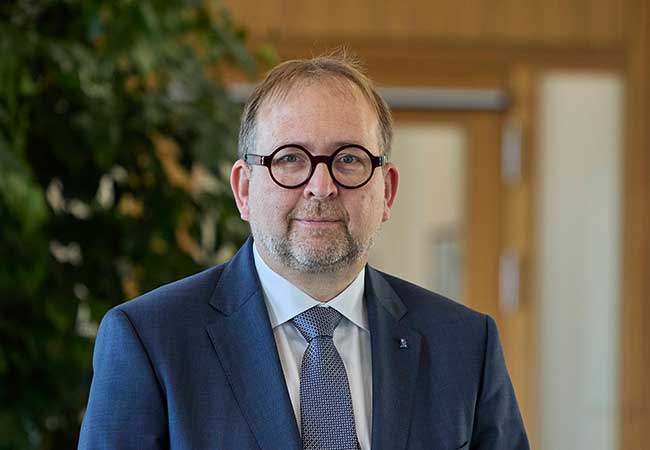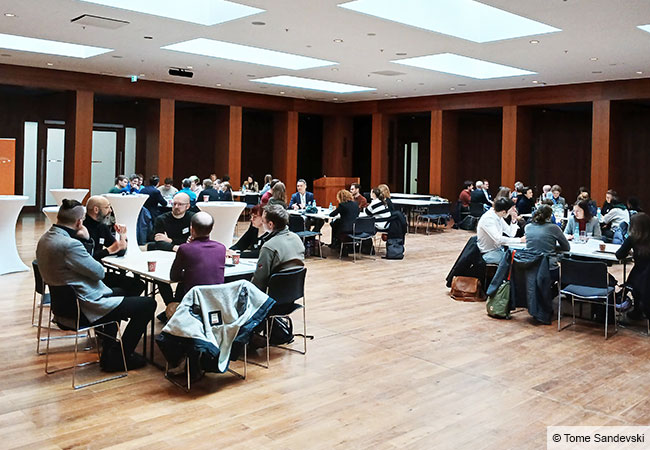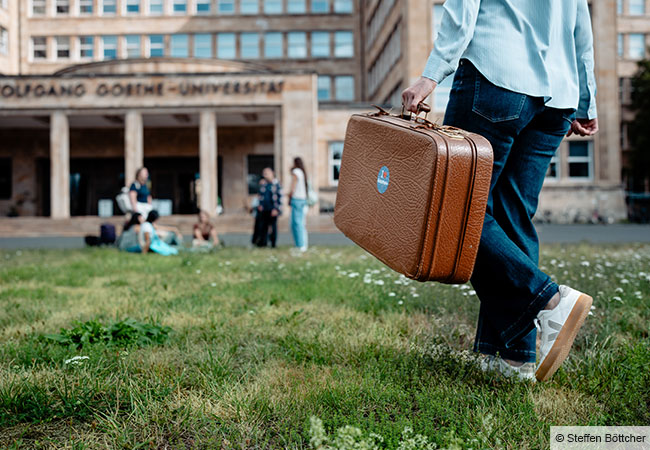Historian Ralf Roth remarks on his anthology examining the political suppression and economic threats to scientific freedom in the past and present.
UniReport: Professor Roth, the events which caused you to organise a conference on scientific freedom and publish this anthology date back to 2017. Aslı Vatansever, your co-editor has also been affected by exile. How would you describe the situation back then and how has it developed since?
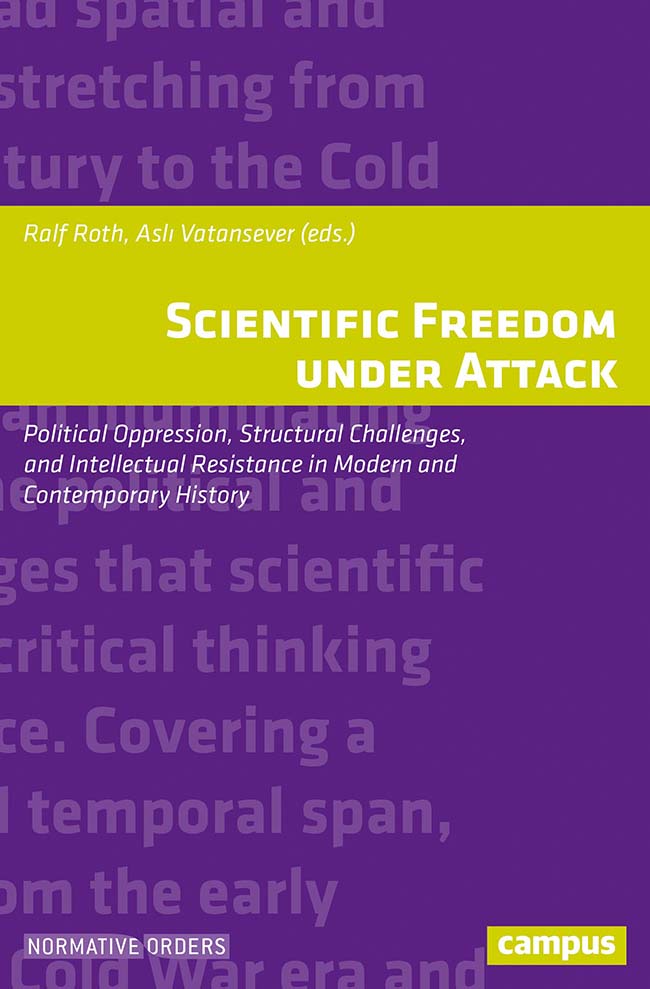
Ralf Roth: At the time, many signals indicated that working conditions for academics had worsened in different countries and regions around the world in comparison to previous years. This affected, and continues to affect, the conditions for disseminating scientific knowledge and the acceptance of these findings outside specialist circles, not only for China, Russia and an increasing number of autocratic states, but also for some countries in Eastern Europe, countries in the Middle East and the Arab world, and even major countries in the West. The situation deteriorated dramatically in Turkey, which has many respected colleges and universities that have been subjected to politically motivated repression for many years, culminating in the events of 2016 and leading to the exclusion and forced migration and exile of thousands of scholars. My co-editor Aslι Vatansever also had to give up her successful academic career and go into exile after she was politically persecuted and lost all her social security entitlements because she, along with hundreds of other academics, had resisted the increasing repression. She has been sharing the stale bread of the exiled ever since. But we should remember that it was Istanbul University that granted admission to Frankfurt scientists in 1933 who had been driven into exile by the National Socialists, such as the ophthalmologist Josef Iggersheimer – and in some cases more generously than German universities have accepted exiled academics in the current climate.
In response to the growing restrictions to scientific freedom which are unworthy of an enlightened world, the international protest movement “Marches for Science” emerged from the USA in 2017 and 2018 and marches have since been held in Frankfurt, among other cities. At that time, Aslι Vatansever took the initiative to put the topic forward to the editorial board of the journal Zeitschrift für Weltgeschichte. It was this proposal that led to the conference with the support of the Cluster of Excellence “Normative Orders” and also the Cultural Office of the City of Frankfurt in November 2018 and its proceedings which were published in the anthology.
Unfortunately, the topic is still just as virulent and relevant today as it was back then, whereby “just as” is actually inaccurate here: Even if there are rays of hope in the USA with the change of government, tendencies of restricting academic freedom have unfortunately not been reversed in many countries but have rather intensified further against science.
How has the coronavirus pandemic affected scientific freedom?
I don’t think that the pandemic is currently the main problem facing scientific freedom today. It does however, certainly prevent social interaction which is a vital component of research. The pandemic has also restricted many research processes, made teaching more difficult and impeded progress in scientific discourse and publishing findings. Be that as it may, none of these implications present an insurmountable obstacle to freely pursuing any line of research. Politically and ideologically motivated pressure is still a far more serious concern from my perspective. Especially considering that science already has tools for containing the pandemic. Nevertheless, the topic of repression and non-transparency still leads back to the pandemic insofar as state prejudice and lapses in scientific freedom continue to leave the public in the dark about the causes of the pandemic. As long as this is still the case, the medical effort to combat the pandemic will not reach its full capability.[1]
As your anthology shows, attacks on scientists and scientific freedom reach far back into the 18th and 19th century. Does this mean that the tendencies restricting scientific freedom today are symptoms of a more permanent crisis or are there grounds to treat current developments with particular concern?
I wouldn’t speak of a permanent crisis facing the sciences in our knowledge-based society. The fragile state between tendencies to improve the research and working conditions of scientists on the one hand and their deterioration on the other hand –as is the case for all freedoms in the area of human rights – is certainly here to stay. In history, however, we have not only known times of crisis but also longer periods of improving and developing freedoms in and for the sciences, which have often improved working conditions for scientists. I still think that there is mostly a tendency towards improvement in the Western world, which has prevailed since the enlightenment, despite various setbacks which Germany has also not been exempt from. The boom in the expansion of universities and the establishment of numerous research institutes as well as a complex knowledge infrastructure stands in contrast to the incomprehensible abysses in which obscurantism, pseudo doctrines, and even delusions held German society firmly in their grip. Scientists, whether just beginning a career or scholars of international repute, were expelled in large numbers. The sciences deteriorated in a matter of months and scholars with great expertise offered to serve a criminal racial policy. Afterwards, many simply carried on as if nothing had happened – after all, the rupture in civilisation did not last for long. This is one of the reasons why German society is still suffering from these years of expulsion and cultural decay. But the exiles came back for the most part and in many cases contributed to an even greater dynamism in the development of science after the war.
No, we can’t hide behind the claim that science is always in crisis, instead we must consider the present tendencies with concern and increased awareness and do all that we can to ensure that the voice of the scientific community gains the public attention it deserves. The extensive criticism of rationalism, myth-making, conspiracy theories, plain lies and untruths that are breaking into political discourse are a warning sign that only enlightenment in the best sense of the word can help.
How would you define scientific freedom? What conditions need to be in place to ensure that scientists can research and publish their findings safely?
Scientific freedom is part of the human rights in the context of the freedom of thought, opinion and press as well as the right to political participation. In this respect, the framework outlined by John Stuart Mill in “On Liberty” is still of central importance. Freedom will always be an ideal that in reality is subject to economic, social, political and cultural limits and restrictions. We will keep on the right track as long as work is being done to remove the restrictions or expand these boundaries. The punishment of certain views and opinions, which also exist in our country, must be kept to a minimum and must be based on firm grounds. Mill refers to this as the harm principle. In Germany, we have criminalised the denial of the Holocaust and the use of the symbols of the criminal system that led Germany to its downfall between 1933 and 1945. It is a matter for discussion as to whether society is mature enough to manage without this ban, as is the case in other European countries or the USA. In any case, a scientific position must always be justified, comprehensible and transparent. In my opinion, a knowledge-based society should place more emphasis on the difficulties of forming knowledge and teach epistemology in schools. We can’t begin early enough to reflect critically and venture out onto the rocky road of forming judgements, making it much more difficult to take away people’s freedom of thought again.
In your own contribution, you examine the flight and expulsion of German sociology during National Socialism, not only focusing on well-known figures such as Max Horkheimer and Theodor W. Adorno, but also on Frederick Pollock. Can you explain the reason behind this and what you found out?
Pollock has been overshadowed by Max Horkheimer and Theodor W. Adorno for many decades. Rolf Wiggershaus has been pointing out for many years that this lack of attention is undeserved. Pollock and Horkheimer in particular shared a close and extraordinarily deep friendship. They even shared a library for many years and had a common ex libris. This goes so far that their bequests are listed together in the StUB because the work simply cannot be separated. Philipp Lenhard’s study, published in 2019, finally takes this into account.[2] I discovered Pollock while I was still a student, through his studies of the Soviet Union and the paper Automation, which I received in the rationalisation working groups of IG Metall and the DGB in the 1980s. After decades of acquaintance, it was not until my research project on the “History of the Digitalisation of the World of Work” that I came to realise the much deeper significance of this work, which remains underappreciated in its formative contribution to post-war sociology. Pollock’s study formed a not insignificant part of the transatlantic transfer of technology that revitalised the German economy beginning in the early 1950s, increasing the economic basis and resources of the Western front during the early stages of the Cold War between the USA and the Soviet Union. This is one of the major reasons why a section of the German Empire got back on its feet so quickly just five years after a crushing defeat and why people speak of the “German economic miracle”. The truth, however, lies more in the fact that the USA shared its superior technological knowledge on an almost equal ratio. This knowledge included the means to automate many production processes using calculating machines. Pollock’s work dealt with this aspect, and he was responsible for introducing the essential elements of this new thrust in industrialisation to the unions. They took his study seriously, formed special departments to deal with its implications and developed strategies including the major experiments of “humanisation of the world of work” in the 1970s and 1980s. In this way, the entry of the computer into the world of work was not only determined by the management of the corporations, but was also shaped by the trade unions. The Institute for Social Research provided the theoretical basis for this with its research on the sociology of industry and work. Nobody spoke of Horkheimer’s and Adorno’s Dialectic of Enlightenment in the first two decades of the Federal Republic.
The contributions to your book are not only about political oppression on the part of authoritarian systems, but also about the economic threat to the scientific system. Why do you think it is necessary to consider these two aspects together, which are after all quite different?
There are broader economic and social freedoms that must be considered in addition to political freedoms. Teaching and research do not come free of charge, but require places, buildings, material resources, sometimes a lot of expensive technology – and last but not least people, who need to be trained extensively, which is a high social cost factor in itself. Rich societies should consider whether it is prudent to allow such a high proportion of their highly qualified workers to eke out a living under completely inadequate working conditions. An academic precariat is a luxury that few societies in the world can afford. The associated semi-feudal or patriarchal dependencies are unworthy of an enlightened society.
Further, in times when everyone is talking about diversification in all levels of the working world, scientists and academics are still recruited from a far too narrow social environment with far too few social climbers. Admissions from low-income, blue-collar and white-collar households may finally be on the rise after decades of education discourse, raising percentages noticeably from the single digits. This would also contribute to democratisation and, not least, to broader acceptance of science in society. Conversely, as long as the value of science is recognised primarily in academic households or in other prestigious backgrounds, the notion of a secret and hidden world of places where knowledge is mysteriously created will prevail. This is an untenable state of affairs for a knowledge society. This is the key reason why I am involved in Arbeiterkind.de – a great network to support those who are studying for the first time in their families, coming from this background myself.
The title of your book also refers to “intellectual resistance”; how do you generally assess the chances that scientists can successfully defend themselves against state oppression and restrictions? And how might they defend themselves?
There is no recipe for success. But they can be role models, beyond the narrow scope of their expertise. They can get involved in political movements and discourse as Aslı Vatansever and I are doing right now with the conference and the book. When the going gets tough, they can also choose to leave. This takes place on a large global scale anyway – voluntarily and involuntarily – and contributes to the growth of a global society. Ultimately, however, it should be a red flag for any society when the best minds leave. Russia never recovered from the brain drain that followed the eventful years from 1917. The lack of freedom of science hangs like a millstone around the neck of Russian society and prevents Russia from developing the wealth it undoubtedly possesses for the benefit and prosperity of all. The current tendency to stylise the few niches in the system as places of freedom, as a substitute, so to speak, as we have documented in our anthology using the example of the “Sharyska” system under Stalin, only masks the distrust that Russian autocrats – those of the 20th as well as those of the 21st century – have of independent and free scientists. Defending scientific freedom is impossible in Russia to this day. Russian scientists therefore made and still make their careers in Europe and even more so in the USA like the exiles from Europe in the time of authoritarian states – Albert Einstein, to mention only one name. The rise of the United States in the 20th century is one success story of brain gain, that is, collecting the runaways.
The American university system has cultivated this from the beginning. I personally witnessed this once at a conference in Delhi, as an American colleague saw how many well-educated Indians were gathered there. He then launched an initiative with his university and several others and they brought no fewer than 600 of these early-career scientists to the USA through fellowship programmes in the field of urban and transport planning and infrastructure. He was quite proud when he told me that when we met again a few years later, and quite rightly so.
Be that as it may, in Germany scientists are free to articulate themselves and they can call for reforms of the system and the improvement of the anchoring of science in society – and they do so.
In Germany, there has also been a dispute about the appropriate culture of discussion at universities for some years now. Buzzwords like “Cancel Culture” are used to describe an attack on academic freedom “from the left”. This, in turn, is disputed by many. How would you classify this debate – are there links to the aspects you have dealt with or is it a different debate?
I’ll be brief: Anyone who prohibits discussions even with false and politically dangerous ideologies (due to their popularity), becomes lazy and sluggish in the head in the long run and betrays the scientific principle, by allowing arguments and superior knowledge to be superseded by the belief in a dogma, that does not allow anything else to exist. Science needs people to take positions and defend their convictions even when faced with disagreement and resentment. We also live in a constitutional democracy, which can be called upon to protect us when violence is threatened in discourse. There are laws in Germany, albeit few, which restrict the freedoms of others. But such laws are always ultimately crutches and should be restricted rather than expanded. Instead of a cancel culture, I would prefer a convince culture.
Questions: Dirk Frank
Ralf Roth is Professor for Modern History at the Institute of History, Goethe University, Frankfurt. Aslı Vatansever is a sociologist and research associate at the Institute Re:Work, Humboldt University, Berlin.


